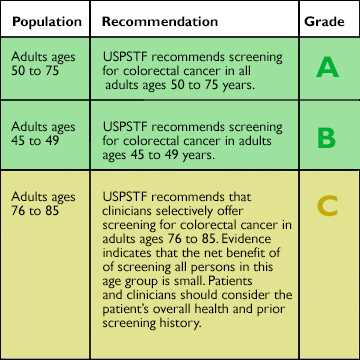
New Guidelines Suggest Lower Age for Colon Cancer Screening: A Step towards Early Detection
Colon cancer is the third most common cancer diagnosed in both men and women in the United States. It is estimated that there will be over 100,000 new cases of colon cancer in 2022. In an effort to detect this cancer at an earlier stage, new guidelines suggest that individuals should be screened for colon cancer at a younger age than previously recommended.
Currently, the American Cancer Society (ACS) recommends that individuals with an average risk of colon cancer should start screening at the age of 45. However, the U.S. Preventive Services Task Force (USPSTF), an independent panel of experts, has recently released new guidelines suggesting that individuals should start screening for colon cancer at the age of 45 as well. This new guideline is a considerable shift from their previous recommendation of screening starting at the age of 50.
The rationale behind these new guidelines stems from the rising incidence of colon cancer among younger adults. Over the past two decades, the rates of colon cancer have been steadily increasing among individuals in their 40s. According to recent studies, there has been a 51% increase in colon cancer cases among individuals aged 40 to 54 since 1994. These alarming statistics have prompted the need for earlier screening.
By lowering the age for colon cancer screening, it is hoped that the chances of detecting the disease at an earlier stage will increase. Early detection plays a crucial role in improving the chances of successful treatment and reducing mortality rates. Screening allows for the identification of precancerous polyps or early-stage cancers before they progress and spread, making it easier to treat and potentially prevent the development of advanced colon cancer.
The new guidelines propose various screening options for individuals aged 45 to 49, including colonoscopy, sigmoidoscopy, or stool-based tests. These options can be tailored to individuals based on their preferences, health conditions, and the availability of resources. Colonoscopy, considered the gold standard for colon cancer screening, involves a thorough examination of the entire colon using a flexible tube with a camera. Sigmoidoscopy focuses on the lower part of the colon, while stool-based tests detect the presence of blood or abnormal DNA changes in the stool.
However, it is important to note that these guidelines are for individuals with an average risk of colon cancer. Individuals with a family history of colorectal cancer or certain genetic conditions may need to start screening earlier or undergo more frequent screenings.
In addition to screening at an earlier age, the new guidelines also emphasize the importance of a healthy lifestyle in reducing the risk of colon cancer. Adopting a diet rich in fruits, vegetables, and whole grains while limiting red and processed meats can have a positive impact on reducing the risk of colon cancer. Regular exercise, maintaining a healthy weight, and avoiding smoking and excessive alcohol consumption are also factors that contribute to a lower risk of colon cancer.
While these new guidelines are a step in the right direction, there are challenges to widespread implementation. Increasing access to affordable and reliable screening options, educating healthcare providers and the public about the importance of early detection, and addressing disparities in healthcare access are crucial to ensuring the success of these guidelines.
In conclusion, the adoption of new guidelines suggesting a lower age for colon cancer screening represents a significant advancement in the fight against this deadly disease. By detecting colon cancer at an earlier stage, it is hoped that more lives can be saved, and the burden of this cancer can be reduced. However, it is essential for individuals to be proactive in discussing their screening options with their healthcare providers and to adopt a healthy lifestyle in order to minimize their risk of developing colon cancer in the first place.

















